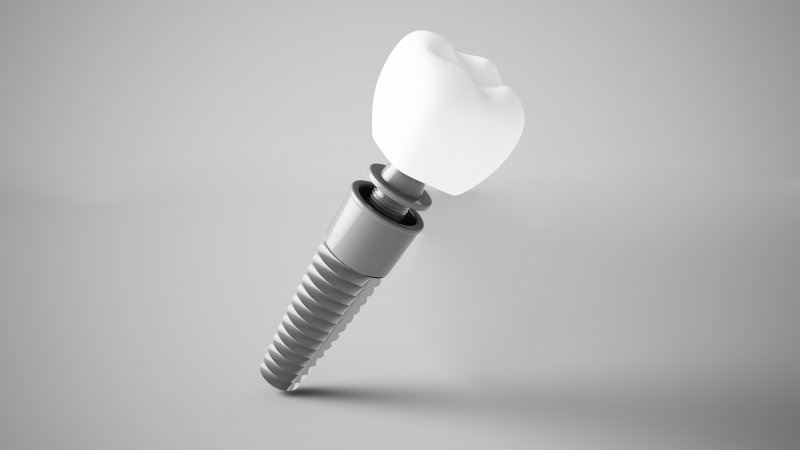
People have fretted over their missing teeth ever since cavemen figured out how to recognize their own reflections. Luckily, dental implants offer a modern tooth replacement solution that looks, feels, and works just like the real thing. These wonderful artificial teeth are designed to be surgically implanted into the jawbone, allowing patients to smile naturally and enjoy all sorts of foods that traditional restorations have difficulty chewing. Here’s a brief list of commonly asked questions about the dental implant recovery process as well as their answers.
Does Recovering After Receiving Dental Implants Hurt?
You can expect some discomfort in the days after receiving dental implants, but the exact amount mostly depends on how extensive the surgery was. If you received more than one dental implant, you may experience more soreness than if you received only one. However, most patients report that receiving a dental implant is less stressful than having a tooth extracted, and your dentist will prescribe pain medication if necessary. If your dentist does not expect you to experience much discomfort, they may recommend an over-the-counter pain reliever instead.
Will There Be Any Swelling?
It is quite possible that you will experience some swelling after receiving dental implants, especially if you received bone grafting treatments beforehand. You can expect your facial swelling to increase for three or four days after your surgery, but it should begin to subside soon after that. You may also experience some temporary bruising or numbness or tingling in the tongue or lip on the side of the surgery. It’s not uncommon to have asymmetrical swelling if you received implants on both sides of your mouth.
Can I Smoke After Receiving Dental Implants?
Tobacco use of any sort is absolutely horrible for your oral health in any case and is especially damaging when you are recovering from oral surgery. While tobacco already contains noxious chemicals that cause the gums to harden and recede, nicotine also has the side effect of making blood vessels constrict, which can greatly hinder your body’s ability to heal and fight infection. It’s recommended that you abstain from smoking for at least two weeks before receiving dental implants and a few months after, so why not quit for good if you have to quit for that long anyway?
Dental implants are the ideal solution to tooth loss. Talking with your dentist or oral surgeon can help you better understand what to expect after having them placed.
About the Author
Dr. Jay Lopez earned his dental degree from the University of Colorado Health Science Center School of Dentistry and is passionate about furthering his training through continuing education courses. He is a proud graduate, mentor, and clinical instructor of the Kois Center in Seattle. His office in Tucson, AZ, offers preventive, restorative, cosmetic, and emergency dentistry as well as dental implant services. To schedule a dental implant consultation, contact his office online or dial (520) 886-8090.
